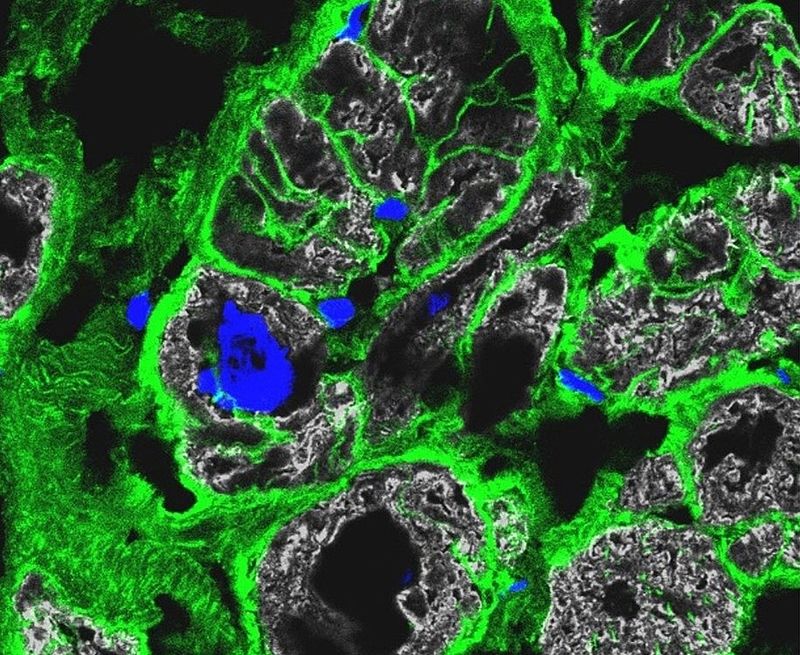How to treat patients with inflammatory cardiomyopathy is not well understood. Data from two small clinical trials suggest that drugs that suppress the immune system may improve heart function. Because these studies were either single-center or not blinded, the European Society of Cardiology (ESC) guidelines do not recommend treatment of inflammatory cardiomyopathies with immunosuppressants. The TRINITY-DZHK26 study is the first multicenter, controlled clinical trial to evaluate whether immunosuppressants help patients with inflammatory cardiomyopathy.
Ursachenforschung anhand von Gewebeproben aus dem Herzmuskel.
Causal research using heart muscle tissue samples
Cardiomyopathies are a group of diseases in which the heart muscle is damaged and therefore less efficient. When it becomes enlarged, it is called dilated cardiomyopathy, or DCM. DCM patients suffer from arrhythmias and symptoms of heart failure. They are given heart failure medications to relieve their symptoms.
"In some patients, the condition worsens even though they are optimally treated with medication," says Dr. Ulrich Grabmaier of the University Hospital Munich, who is leading the TRINITY-DZHK26 study together with Prof. Steffen Massberg. Doctors then take a tissue sample from the heart muscle to determine the cause. Up to 65 percent of patients suffer from chronic inflammation of the heart muscle, known as inflammatory cardiomyopathy. Viruses cannot be detected; autoimmune processes seem to keep the inflammation going.
These are often young patients, on average in their forties, whose condition continues to deteriorate despite cardiac therapy. "It is important to catch these patients early to stop the damaging remodeling processes in the heart," says Grabmaier.
Six months, two immunosuppressants
The DZHK trial will enroll 130 patients with inflammatory cardiomyopathy. The patients will be randomly assigned to one of two study groups. One group will receive the two immunosuppressive drugs prednisolone and mycophenolate mofetil (MMF), the latter of which is used in transplantation medicine, for six months in addition to cardiac therapy. The other group will continue to take the heart failure medications and a placebo. Neither the doctors nor the patients know whether they are receiving the drugs or the placebo; such trials are called double-blind. During the six months of treatment, people in the study are closely monitored. Before and after, their heart function is measured using magnetic resonance imaging (MRI) to assess whether the immunosuppressants have improved it.
Study title: A multicenter, randomized, double-blind, placebo-controlled TRial evaluating Immunosuppressive treatment in patients with chronic virus-Negative Inflammatory cardiomyopaThY TRINITY-DZHK26
Principal Investigators: Priv.-Doz. Dr. med. Ulrich Grabmeier, Klinikum der Universität München, Medizinische Klinik und Poliklinik I, ulrich.grabmaier(at)med.uni-muenchen.de
Prof. Dr. med. Steffen Massberg, Klinikum der Universität München, Medizinische Klinik und Poliklinik I, steffen.massberg(at)med.uni-muenchen.de
Contact: Christine Vollgraf, Press and Public Relations, German Center for Cardiovascular Research (DZHK), +49 30 3465 529 02, presse(at)dzhk.de


